ED Treatment for Men with Heart Conditions: Safe Alternatives and Guidelines
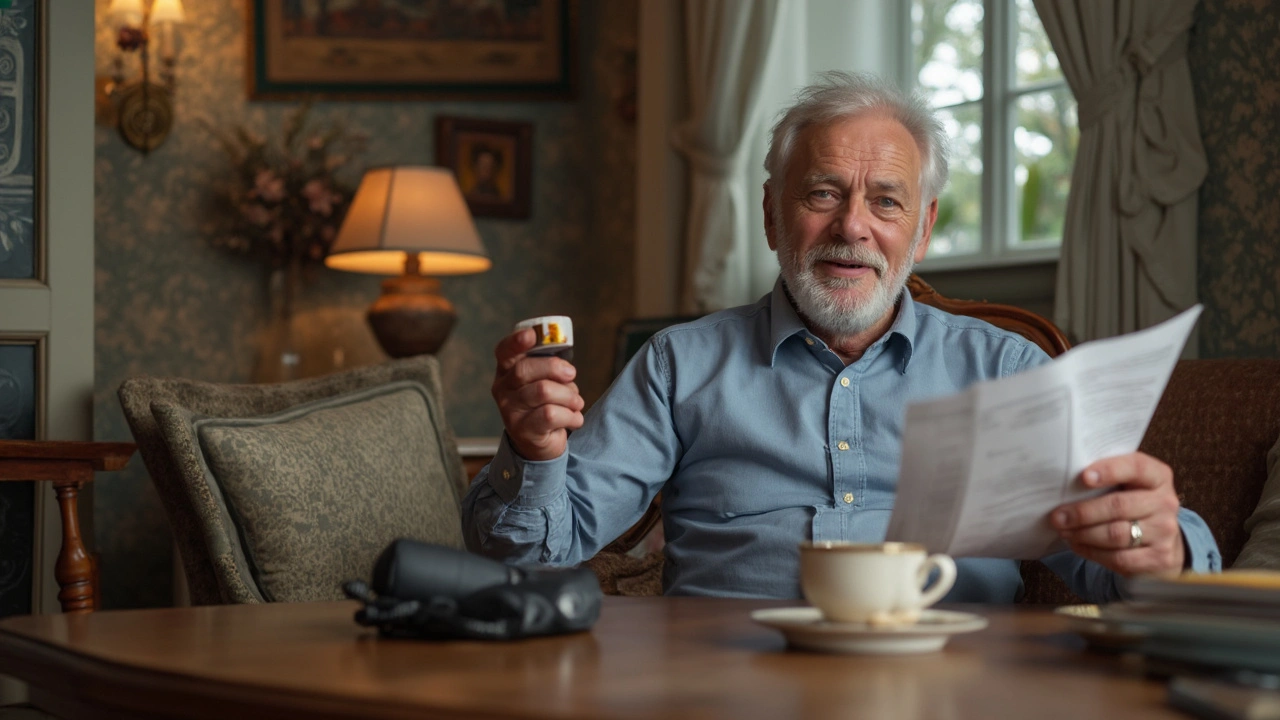
- Colin Hurd
- 29 April 2025
- 13 Comments
ED and Heart Disease: The Complicated Relationship
It might shock you how closely tied erectile dysfunction (ED) and heart disease are. About 75% of men living with heart problems end up facing ED at some point. We're not just talking about minor issues, either—guys with angina, heart failure, or past heart attacks often notice their performance takes a nosedive. There's a reason for that. Your erections and your heart depend on healthy blood vessels, and when arteries get clogged or stiff, flow drops everywhere. Doctors often say ED is the "canary in the coal mine" for heart trouble, popping up years before a major heart event. When I first learned this, it seemed unfair—just as a man is dealing with scary heart news, another blow hits, right in the confidence.
But it's not all doom and gloom—knowing there’s a connection can be powerful. If you notice changes in sexual function, especially if you have risk factors like diabetes, high blood pressure, or high cholesterol, don't ignore it. Studies out of Australia—think University of Sydney's long-term research—showed men with ED were twice as likely to develop heart disease. It's like an early warning system. That means treating ED isn’t just about sex; it can clue you in to bigger health fixes you might need.
Here’s something you might not hear from your GP: many of the pills for treating heart conditions themselves—like beta-blockers and diuretics—can make ED more likely. For instance, the old-school beta-blockers (like propranolol or atenolol) are notorious for zapping desire or making it tougher to get hard, while newer ones such as nebivolol have less of this effect. Nitrates (like nitroglycerin or isosorbide mononitrate), standard for angina, clash big time with the famous blue pill. Mixing them can drop your blood pressure so low it becomes dangerous—think fainting, heart attacks, or even worse.
On a more positive note, tackling ED opens doors for sorting out your heart, too. Regular exercise, as simple as walking daily, improves blood flow throughout your body. Stop smoking, cut down on booze, and watch your blood sugar—these changes can revive your sex life and help your heart. The bottom line: if you’ve got heart problems, ED isn’t just an inconvenience. It’s a sign to talk honestly with your doctor and make a plan instead of accepting things as they are.
Why Viagra Isn’t Always Safe: The Nitrate and Beta-Blocker Problem
Everyone knows about Viagra and its cousins—Cialis, Levitra, you name it. Sure, they work wonders for a lot of men, but if you’re on heart medicines, the situation gets tricky. If you take nitrates (or even use a nitro patch for chest pain), the combo with ED meds is a giant red flag. Here’s why: Viagra, Levitra, and Cialis all widen blood vessels by boosting nitric oxide, just like nitrates do. Putting those together risks a major blood pressure crash. This can mean dizziness, collapse, or a heart attack—serious stuff, no exaggeration.
The off-limits sign isn’t just for guys on nitrates, either. Some heart failure medications and classes of alpha-blockers could also interact badly and worsen symptoms. Now, you might wonder about beta-blockers. The story’s different here. Beta-blockers don’t actually interact with ED meds in a dangerous way, but they do make it tougher physiologically to get an erection. The result? Taking Viagra while on a beta-blocker won’t tank your blood pressure, but the improvement might not be as dramatic.
There's another layer of complexity: a lot of men on heart drugs are also on blood thinners, statins, or diabetes meds. Each new pill can create more room for unplanned reactions, so the advice to check with a specialist isn’t just bureaucratic—it’s lifesaving. In a 2023 survey in the UK, out of 1,000 men with heart conditions, nearly half admitted they’d tried ED drugs without telling their doctor. Not a smart move. The risks aren’t just medical—if you faint or feel dizzy and get injured, you could end up in hospital. On top of all that, not talking about sex with your cardiologist means you might feel isolated or ashamed for something that’s actually really common.
If you’re feeling frustrated at the grocery list of what you can’t take, you’re not alone. The bright spot: there’s ongoing research into newer ED medications that won’t have the same risky overlap with heart drugs. And doctors are much more open now to conversations around sexual health in the context of heart disease. If you’re proactive, you can find a treatment plan that feels safe and honest with your condition.
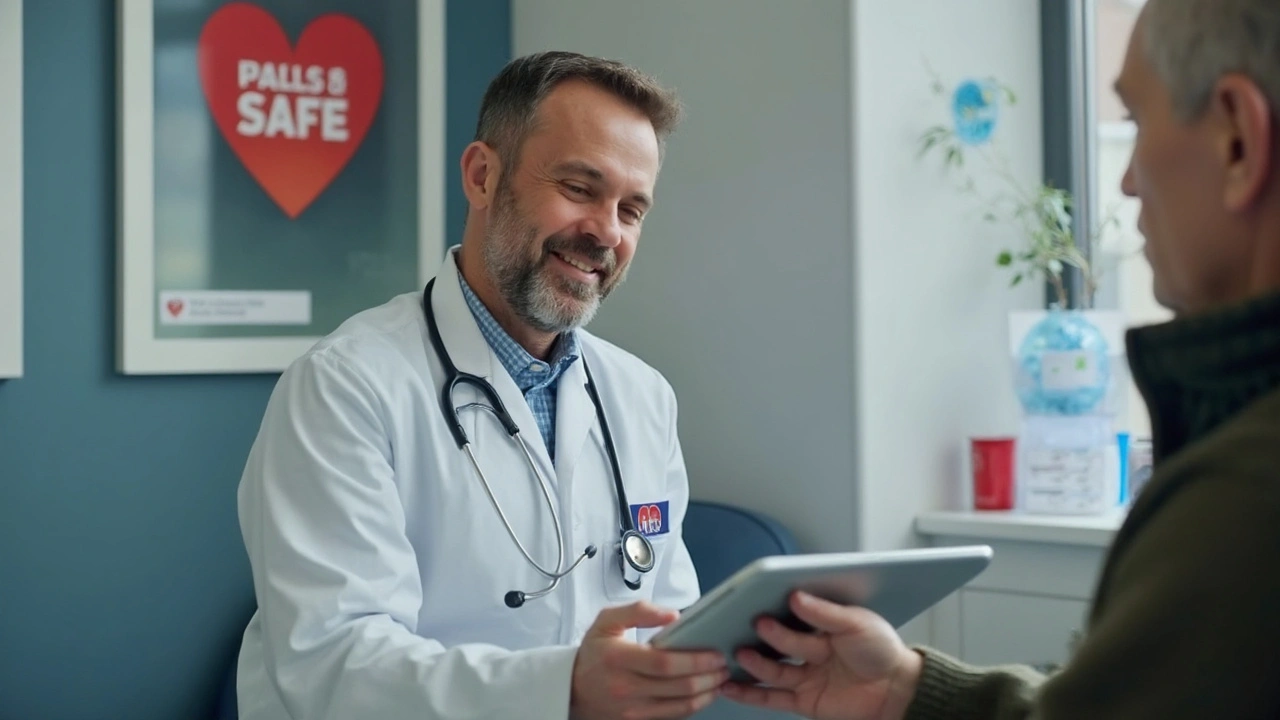
Safe Alternatives for ED in Heart Patients: What Actually Works?
So, what can you do when the classic pills are out of bounds? You’ve got more options than you might expect—and I’m not talking about snake oil from dodgy corners of the internet. Let’s break down the best evidence-backed alternatives for men on nitrates or risky heart meds.
Vacuum erection devices (VEDs): These “penis pumps” have been around for decades. They’re not just a party punchline; they really can work. A tube fits over the penis, a pump draws blood into it, and a rubber ring keeps the blood in place for intercourse. For guys who can’t take pills, these are FDA-approved and have a high success rate among heart patients. There are a few drawbacks—some men find them awkward, and they’re not exactly spontaneous. Bruising and discomfort are possible, too. But if you want a drug-free, zero-interactions solution, this is top of the list.
Penile injections: Sounds rough, right? But injections like alprostadil go straight into the penis and work in minutes, bypassing the usual pathways that are affected by heart medications. Men on nitrates can use these, and reported satisfaction is actually high once you get over the needle phobia. Most users report a reliable erection and independence from complicated drug regimens. Side effects? Sometimes pain, scarring, or prolonged erections, but these are manageable with good technique. Doctors usually teach the process to make sure you’re confident before leaving you to it.
Intraurethral therapy: This mouthful refers to tiny pellets of medicine—also usually alprostadil—inserted into the tip of the penis. Less invasive than injections, but still not as easy as swallowing a pill. The response rates are good (50 to 60 percent achieve usable erections), and men with heart conditions can use them safely. Some report mild burning, but it often fades fast.
Hormonal therapy: Now, this isn’t for everyone, but it’s worth checking your testosterone. Low levels aren’t rare in men after a heart attack, especially those with diabetes or advanced age. Boosting testosterone can improve energy, libido, and sometimes erectile function (but won’t override blood flow problems caused by heart meds or blocked arteries). If your levels are normal, taking more won’t help and could actually cause harm, so testing is key.
Lifestyle modifications: Every single expert I’ve met agrees: exercise makes almost everything better, especially ED tied to heart trouble. A study out of Perth tracked men who started daily walking and cut down on fatty, junk-heavy foods—within six months, 60% reported stronger erections, all without risky supplements. Smoking is a libido killer for both the bed and the heart. If you quit, improvements can show up in weeks. Add in managing stress and improving sleep, and you set a good stage for recovery.
Psycho-sexual counseling: Sex isn’t just a plumbing issue. Heart disease can mess with your mind—anxiety, depression, or just feeling fragile in your masculinity can sap desire. Sex therapists (individual or couples) help you and your partner navigate these emotional roadblocks, often with huge benefits even without any drugs or gadgets. Medicare here in Australia sometimes covers counseling if you’re referred, so it’s worth exploring.
Still after an oral treatment? Before deciding it’s impossible, check out this safe alternative to Viagra resource—it uncovers some newer, non-nitrate-interacting meds and supplements that are under clinical review for safety. But always, always talk to your doctor before ordering anything online, especially with your heart health in the balance.
Staying Safe and Enjoying Sex: Real-World Tips for Heart Patients
Men living with heart disease often get told to just accept a quieter sex life. That’s rubbish. Sex is part of a good, happy life for most blokes, and you don’t have to just give it up because you tick a few risk factors. If you want safe, satisfying sex, the conversation can’t end with don’ts—here are some field-tested tips.
First up, don’t make assumptions. Many men think they can’t have sex after a heart attack, but unless your doctor says no, most guys can resume sex as soon as they can walk briskly for ten minutes without pain, dizziness, or breathlessness. A little anxiety is normal, so start gently and communicate. If you get chest pain (angina), stop, and take your prescribed medication (not nitroglycerin if you’ve recently used ED drugs, obviously).
If you’re worried about a sudden health event, have a game plan with your partner. Keep your phone nearby, and stick to familiar positions that don’t strain your chest or shoulders too much. Some studies show men prefer side-by-side or woman-on-top after heart surgery—not exactly movie romance, but safe and comfortable.
Track your meds. Keep a simple chart (paper or digital) of your medications, doses, and times. This helps avoid accidentally pairing risky medications together, like a nitrate and an ED pill, and makes it easier for your doctor to suggest secure options if you decide to try something new.
If you smoke or drink heavily, cutting back will help not just your heart but your sex drive and stamina. The Australian Heart Foundation reckons that ex-smokers regain better circulation within mere weeks, not years. Alcohol, though relaxing, can drop your blood pressure and impair performance, so find your body’s sweet spot.
Consider check-in visits with your doctor or a urologist every six to twelve months if you’re balancing a heart condition with ED. These visits are a smart move—they help you stay on top of shifting health status, new treatment options, and can replace outdated advice.
If you use online pharmacies, only go for those backed by a major hospital or government health website. A 2024 Consumer Watchdog survey caught out half a dozen Australian online sellers flogging fake or dangerously dosed ED pills—avoid those headaches entirely and stick with trusted sources.
Your mental health matters just as much as your physical wellbeing. If ED or heart problems make you feel isolated or down, reach out—a lot of blokes keep quiet, but sharing takes the weight off and makes recovery easier.
No one wants to be told what they can’t do. But with the right knowledge and a tailored approach, men with heart conditions still have many solid routes to a satisfying sex life. It just takes the right conversation—and the willingness to try a few new things.

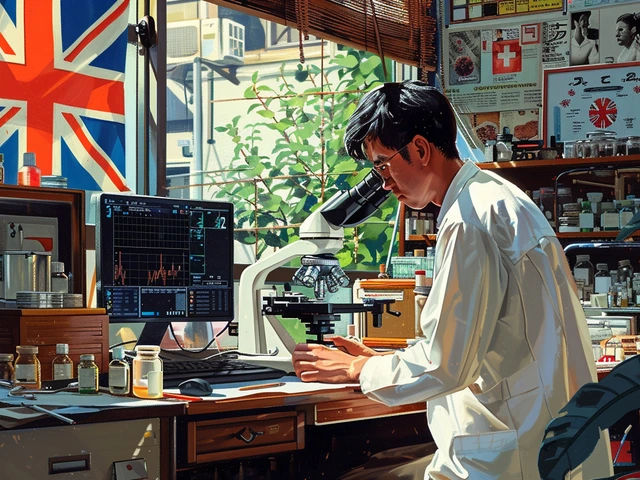
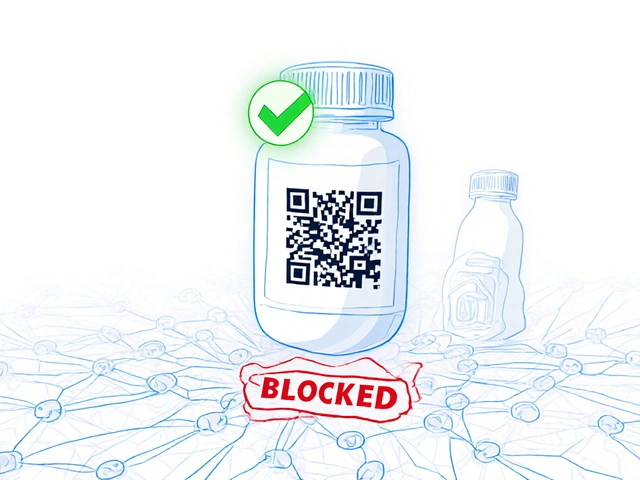
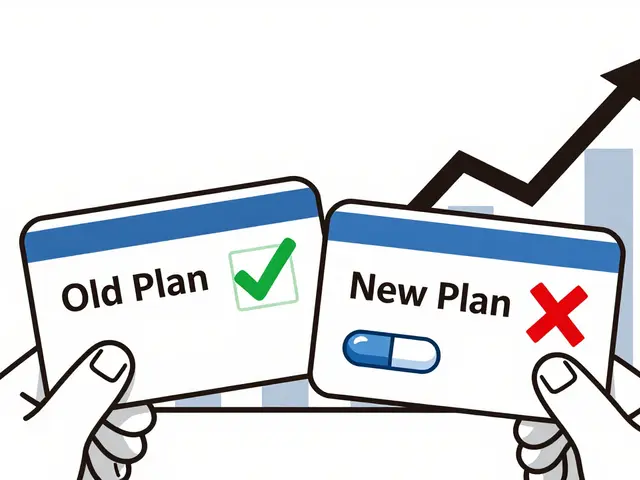
Comments
Garrett Gonzales
When evaluating erectile dysfunction in the context of cardiovascular disease, it’s crucial to consider the pharmacodynamics of phosphodiesterase‑type 5 (PDE5) inhibitors. These agents amplify the nitric oxide–cGMP pathway, which can synergize dangerously with nitrate therapy, precipitating profound hypotension. Beta‑blockers, especially first‑generation compounds like propranolol, may blunt sympathetic tone and secondary erectile response, necessitating dose titration or a switch to newer agents such as nebivolol. Parallelly, lifestyle interventions-regular aerobic exercise, smoking cessation, and glycemic control-produce endothelial regeneration that benefits both myocardial perfusion and penile hemodynamics. A structured risk stratification protocol, integrating the International Index of Erectile Function (IIEF) score with coronary artery calcium scoring, can guide clinicians toward safe therapeutic corridors. Moreover, patient education about the “canary in the coal mine” phenomenon encourages proactive cardiovascular screening. Finally, multidisciplinary collaboration between cardiology and urology ensures that medication reconciliation avoids contraindicated pairings while preserving quality of life.
April 29, 2025 AT 06:36
Aman Deep
Wow – this really hits home :) you’ve nailed the balance between science and empathy
May 4, 2025 AT 15:39
Herman Bambang Suherman
For anyone on nitrates, a vacuum erection device is a solid, drug‑free option. It’s FDA‑approved and works reliably for most heart patients.
May 10, 2025 AT 00:43
Meredith Blazevich
It’s easy to feel embarrassed about resorting to a pump, but the data are clear: VEDs can restore satisfactory rigidity in upwards of 80 % of cases when used correctly. The learning curve is short; most men master the technique after a few sessions. Plus, there’s no systemic interaction to worry about, which is a huge relief for those on complex cardiac regimens. While the experience isn’t as “spontaneous” as a tablet, the psychological boost from regaining control is undeniable. Remember, intimacy is a partnership, and involving your partner in the process often makes the whole thing feel less clinical.
May 15, 2025 AT 09:46
Nicola Gilmour
Don’t let your heart meds dictate your bedroom life – you’ve got options! Even simple daily walks can boost circulation and confidence. Keep the momentum, and the results will follow.
May 20, 2025 AT 18:50
Darci Gonzalez
Exactly! Small lifestyle tweaks can be a game‑changer :) staying active and cutting back on booze really does the trick.
May 26, 2025 AT 03:54
Marcus Edström
One often overlooked strategy is penile injection therapy with alprostadil. The drug bypasses the nitric oxide cascade and directly induces smooth muscle relaxation, making it safe for patients on nitrates. Proper training minimizes pain and reduces the risk of priapism, and satisfaction scores consistently exceed 70 % in cardiac cohorts. It does require a sterile technique, but most urologists provide hands‑on instruction to ensure confidence. In addition, intraurethral alprostadil offers a less invasive alternative for those hesitant about needles, with comparable efficacy in select studies. Combining these modalities with a structured exercise regime can amplify outcomes without compromising cardiovascular safety.
May 31, 2025 AT 12:57
kevin muhekyi
Good points – I’ve seen men get back on track with injections after a heart surgery.
June 5, 2025 AT 22:01
Teknolgy .com
Nice article 😂
June 11, 2025 AT 07:04
Caroline Johnson
Seriously??? This post completely ignores the fact that most men will just ignore “safe alternatives” and keep popping pills!!!, which is dangerous, especially when combined with anticoagulants!!!, and yet the author pretends everything is fine!!!
June 16, 2025 AT 16:08
Megan Lallier-Barron
While the mainstream narrative glorifies oral PDE5 inhibitors as the ultimate solution, the reality for a significant subset of cardiac patients is far more nuanced. First, the pharmacokinetic interaction between nitrates and any agent that potentiates the nitric oxide pathway is not merely theoretical; documented cases of precipitous systolic drops have led to syncope and even myocardial ischemia. Second, the psychosocial dimension-anxiety about potential side effects-can itself suppress erectile function via heightened sympathetic tone, creating a self‑fulfilling prophecy. Third, the clamor for “quick fixes” often eclipses the modest yet robust evidence supporting non‑pharmacologic interventions such as structured aerobic training, which improves endothelial function across the vascular tree. Fourth, vacuum erection devices, despite an outdated reputation, have shown reliability rates surpassing 70 % in randomized controlled trials involving men on beta‑blockers. Fifth, intracavernosal injections, when administered under proper supervision, circumvent systemic interactions entirely and deliver erection quality comparable to oral agents, albeit with a learning curve. Sixth, hormonal assessment remains underutilized; undiagnosed hypogonadism can exacerbate both cardiac fatigue and sexual dysfunction, and testosterone replacement-when carefully monitored-may improve libido without adverse cardiovascular events in selected patients. Seventh, emerging research into selective phosphodiesterase‑type 9 inhibitors hints at a future where efficacy is decoupled from nitrate interaction, though these agents remain experimental. Eighth, the role of mental health counseling cannot be overstated; cognitive‑behavioral strategies have yielded measurable improvements in sexual satisfaction, independent of physiological changes. Ninth, patient‑physician communication is paramount-studies reveal that men who disclose sexual concerns to their cardiologists receive more tailored and safer therapeutic plans. Tenth, insurance coverage disparities, especially in countries with fragmented healthcare systems, often dictate whether a patient can access device‑based therapies, inadvertently perpetuating reliance on risky medication combinations. Eleventh, the cultural stigma surrounding sexual health in many societies leads to underreporting, skewing epidemiological data and impeding guideline development. Twelfth, comprehensive care models that integrate cardiology, urology, and psychology have demonstrated superior outcomes versus siloed approaches. Thirteenth, lifestyle modifications-cessation of smoking, moderation of alcohol, balanced nutrition-remain the cornerstone of both cardiac and sexual health, yet are frequently dismissed as “secondary.” Fourteenth, ongoing clinical trials are evaluating low‑dose tadalafil regimens that may offer a therapeutic window for patients on stable nitrate therapy, but results are pending. Finally, the bottom line is that a one‑size‑fits‑all prescription is insufficient; personalized, multimodal strategies that respect both cardiovascular safety and sexual fulfillment are essential for optimal patient care 😊
June 22, 2025 AT 01:12
Kelly Larivee
That’s a lot to think about, but keeping it simple helps. Talk to your doctor, try the pump or injections, and keep moving.
June 27, 2025 AT 10:15
Emma Rauschkolb
Honestly, the clinical lexicon you just dropped feels like a cold data dump – it’s draining the emotional bandwidth out of anyone trying to cope 😔. While the mechanisms are fascinating, the lived experience of anxiety, embarrassment, and the yearning for intimacy gets lost in the biochemistry. A balanced approach that acknowledges both the pathophysiology and the personal narrative would be far more therapeutic. Remember, behind every molecule there’s a person.
July 2, 2025 AT 19:19